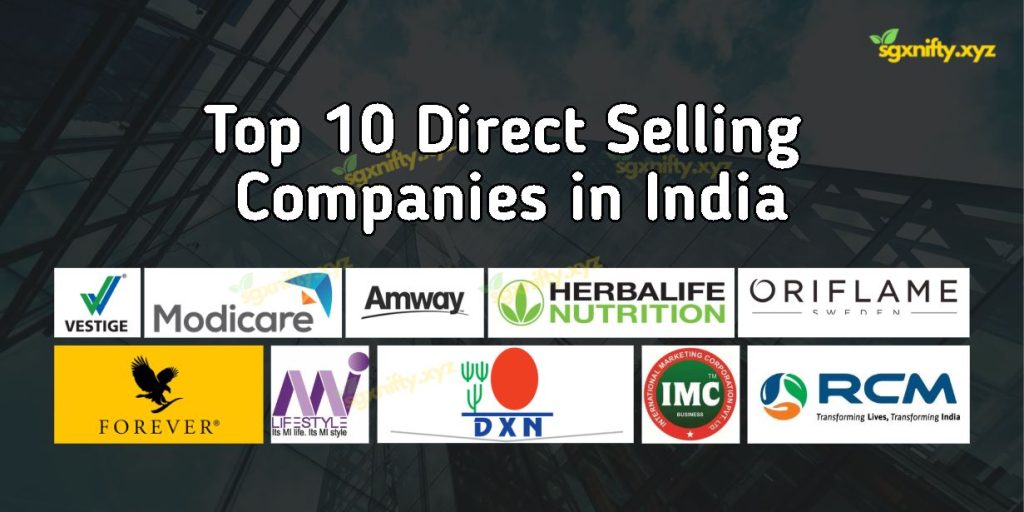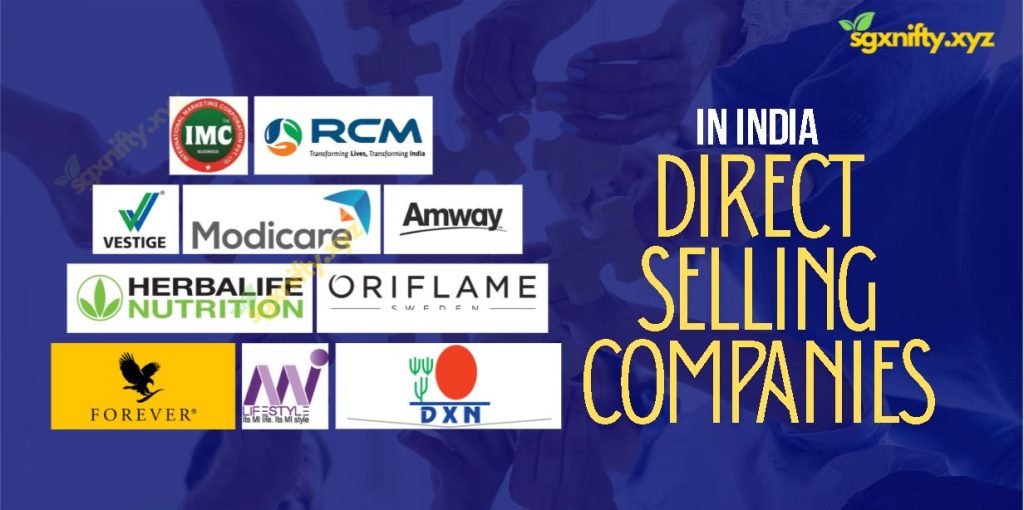
India’s direct selling Companies is thriving — transforming everyday consumers into micro-entrepreneurs and offering flexible earning opportunities to millions. In 2025–2026, this sector continues to grow steadily, backed by strong demand for health, wellness, and personal care products, as well as clearer government regulations ensuring ethical operations.
What is Direct Selling?
Direct selling simply means selling products or services directly to consumers without relying on traditional retail stores. It’s a people-driven business model where independent distributors connect directly with customers — often through personal networks, online platforms, and product demos.
It’s not just sales — it’s about empowerment, flexibility, and entrepreneurship.
💡 Did You Know?
- India’s direct selling industry reached ₹22,142 crore in FY 2023–24 — growing at around 4.4% year-on-year.
- More than 88 lakh Indians are active in this sector, with a strong presence in Tier-II and Tier-III cities.
- The industry operates under Consumer Protection (Direct Selling) Rules, 2021, ensuring transparency and banning pyramid schemes.
Sources: IDSA, IBEF, Ipsos, Government of India.
Why Direct Selling Matters in India
- Provides flexible earning opportunities for youth and homemakers.
- Encourages women entrepreneurship — over 55% of direct sellers in India are women.
- Promotes Make in India by pushing locally manufactured products.
- Creates awareness about health, nutrition, and personal care in smaller towns.
How We Ranked the Top Companies
We analyzed each company based on:
- Verified or reported India revenue (FY 2024–25)
- Product range and innovation
- Legal compliance (especially under Consumer Protection Rules, 2021)
- Distributor support, ethics, and growth opportunities
- Market reputation and longevity
Top 10 Direct Selling Companies in India (2025–2026)
| Rank | Company | FY24 India Revenue (Estimated/Reported) | Core Category | Highlights |
|---|---|---|---|---|
| 1 | Vestige Marketing Pvt. Ltd. | ₹1,200+ crore (est.) | Wellness, health & personal care | Fastest-growing Indian company with a massive distributor base and ISO/GMP-certified products. |
| 2 | Modicare Limited | ₹931 crore (reported) | FMCG, home & wellness | One of India’s oldest and most trusted direct selling firms — Indian-owned legacy brand. |
| 3 | Amway India | ₹1,283.7 crore (reported)** | Nutrition, beauty, homecare | Global brand with strong training programs, though recently reported financial losses in India. |
| 4 | Herbalife Nutrition | $796M global (India major contributor)** | Nutrition, supplements | Global wellness brand known for its community-driven model and weight management products. |
| 5 | Oriflame India | ₹437 crore (reported) | Beauty & cosmetics | Swedish beauty company empowering women entrepreneurs across India. |
| 6 | Forever Living Products India | — (est. several hundred crore) | Aloe vera wellness | Globally known for aloe-based products and attractive leadership bonuses. |
| 7 | Mi Lifestyle Marketing Global Pvt. Ltd. | ₹500+ crore (est.) | FMCG, agri, food & wellness | Rapidly expanding with strong digital onboarding and product diversity. |
| 8 | DXN Marketing India | ₹100–500 crore (range) | Health supplements | Focused on Ganoderma-based wellness products and ethical marketing. |
| 9 | IMC (International Marketing Corporation) | ₹800–900 crore (est.) | Health, homecare, agriculture | Indian company known for Ayurvedic and organic product lines. |
| 10 | RCM / Regional Players (Tupperware, etc.) | — (varies) | Home & daily essentials | Smaller networks, often with strong local presence in semi-urban India. |
Note: Figures are sourced from IDSA, Business Standard, Tracxn, BusinessForHome, and company filings. “Est.” indicates credible industry estimates where audited figures are unavailable.
Company Spotlights

1. Vestige Marketing Pvt. Ltd.
Founded in 2004, Vestige is one of India’s fastest-growing direct selling companies. It offers a wide range of health, wellness, and personal care products.
Pros: Indian-owned, massive network, consistent growth.
Cons: Verify income disclosure for transparency.
USP: Ranked among top global direct selling companies (BusinessForHome).
2. Modicare
Part of Modi Enterprises, Modicare has been a household name since the late 1990s. It’s known for affordable wellness, homecare, and beauty products.
Pros: Oldest Indian direct selling brand; strong customer trust.
Cons: Competitive FMCG space.
Fun Fact: Modicare was one of the founding members of IDSA (Indian Direct Selling Association).
3. Amway India
One of the most recognizable global direct selling brands, Amway India continues to dominate the nutrition and personal care segments.
Pros: Global support system, scientific product backing.
Cons: Tight compliance rules and high performance expectations.
Trust Factor: Fully compliant with Consumer Protection (Direct Selling) Rules, 2021.
4. Herbalife Nutrition
A global powerhouse in nutrition and wellness, Herbalife India has seen steady sales growth in the last few years.
Pros: Strong product innovation; global credibility.
Cons: Intense regulatory scrutiny for supplements.
Highlight: India is one of Herbalife’s fastest-growing markets worldwide.
5. Oriflame India
This Swedish beauty and wellness brand has a loyal distributor base across India.
Pros: Great for aspiring women entrepreneurs.
Cons: Tough competition in cosmetics.
Did You Know? Oriflame was one of the first beauty brands to introduce direct selling in India.
6. Forever Living Products (India)
Aloe vera–based global wellness giant.
Pros: Natural product line and global brand.
Cons: Limited local financial disclosures.
USP: High distributor retention through leadership training programs.
7. Mi Lifestyle Marketing Global
A newer yet fast-growing Indian company selling wellness, agriculture, and personal care products.
Pros: Digital-first approach; appealing to youth.
Cons: Transparency needs to be improved with public filings.
Motivational Note: Perfect for ambitious beginners seeking fast-growth sectors.
8. DXN India
Known for its Ganoderma mushroom–based health products.
Pros: Unique niche; loyal consumer base.
Cons: Narrow category focus.
Ethics: Registered under IDSA; transparent product quality controls.
9. IMC (International Marketing Corporation)
IMC offers Ayurvedic and herbal wellness products with a rural-urban outreach strategy.
Pros: Indian-made, diversified product range.
Cons: Product approval checks required for certain agri/vet items.
USP: Promoting “Swadeshi” entrepreneurship through herbal products.
10. RCM / Regional Networks
Popular across smaller towns with affordable consumer goods and a loyal base.
Pros: Local reach and trust.
Cons: Limited national visibility and digital presence.
Industry Comparison — Key Takeaways
| Feature | Indian Giants (e.g., Vestige, Modicare) | Global Brands (e.g., Amway, Herbalife) |
|---|---|---|
| Ownership | Indian | International |
| Focus Area | FMCG, Ayurveda, homegrown wellness | Nutrition, cosmetics, supplements |
| Earning Structure | Sales-driven, fast-moving | Structured, global rank system |
| Training Support | Regional mentorship | Corporate-backed training programs |
| Compliance | IDSA-registered, under 2021 Rules | Follows same national regulation |
Challenges & Tips for Aspiring Direct Sellers
✅ Understand Your Costs: Be clear about starter kits and sales targets.
✅ Check Legal Status: Confirm if the company is registered under IDSA or DPIIT.
✅ Avoid Pyramid Schemes: Genuine direct selling = product-based earnings, not recruitment-based.
✅ Use Social Media: Build credibility through authentic content and customer reviews.
✅ Think Long-Term: Success comes from consistency, not shortcuts.
💬 Expert Tip
“Pick a company whose products you genuinely love. Authentic enthusiasm converts more customers than any commission plan.”
Future Outlook (2026 and Beyond)
The Indian direct selling market is expected to cross ₹25,000 crore by 2026.
Driven by digital onboarding, wellness awareness, and women-led entrepreneurship, the sector is evolving into a serious income alternative for millions.
In short: The future of direct selling in India looks promising — more transparent, more digital, and more empowering.
Final Thoughts
Whether you’re joining as a part-time seller or researching this billion-rupee industry, always prioritize trust, compliance, and genuine value. Direct selling in India isn’t just a business — it’s a people-powered movement reshaping small-town entrepreneurship.
FAQs
Q1. Which is the No.1 direct selling company in India?
Vestige Marketing Pvt. Ltd. currently leads among Indian companies by estimated revenue and growth.
Q2. Is direct selling legal in India?
Yes — it’s regulated under the Consumer Protection (Direct Selling) Rules, 2021.
Q3. What products are most popular in direct selling?
Health supplements, personal care, homecare, and cosmetics lead the market.
Q4. Can students or homemakers join direct selling?
Absolutely! It’s one of the most flexible income opportunities available today.
✨ The Future is Direct
If you’re passionate about wellness, self-growth, or entrepreneurship — direct selling in India is your gateway to independence and impact.
For more insights on Indian markets, billionaire wealth updates, and stock analysis, stay tuned to SGXNifty.xyz — your daily pit stop for sharp, reliable market stories.
